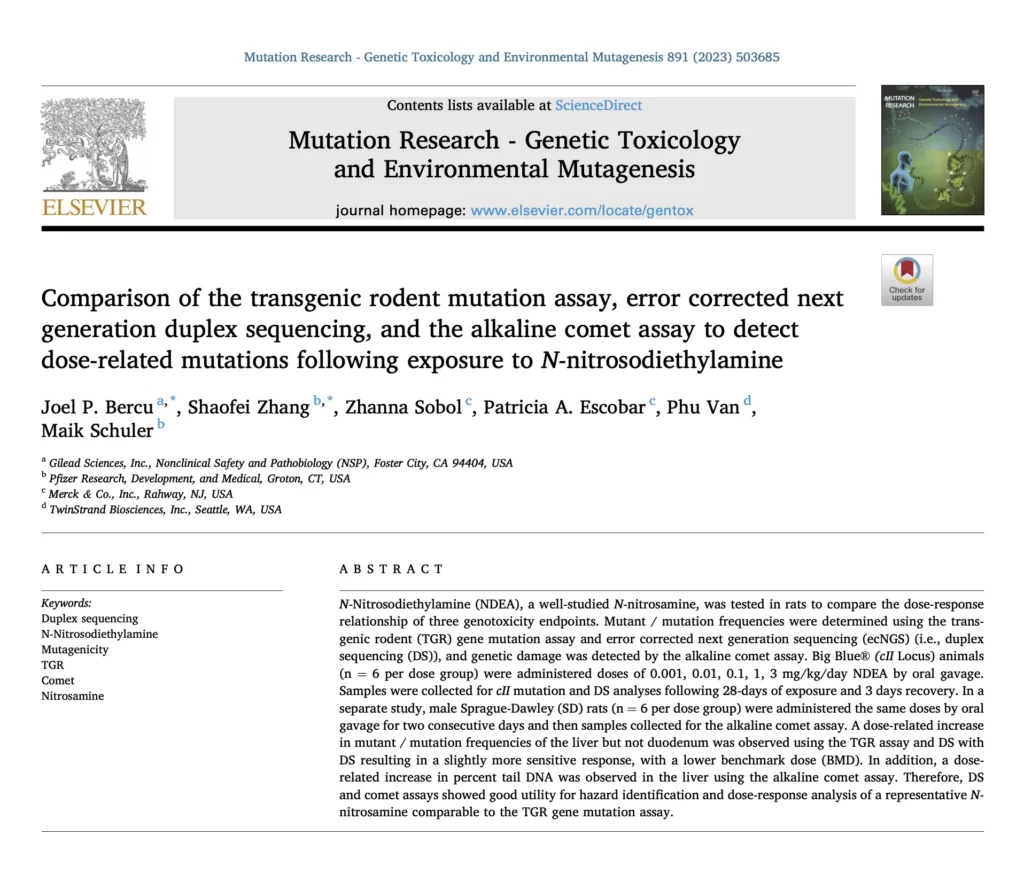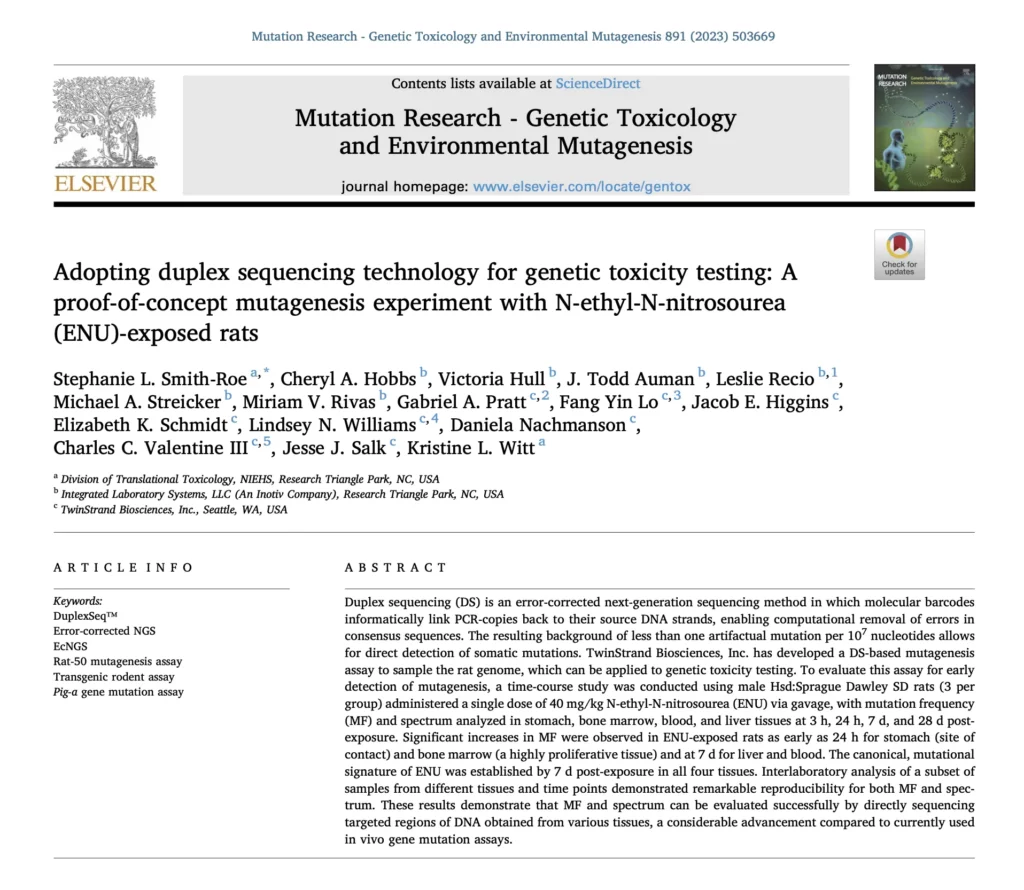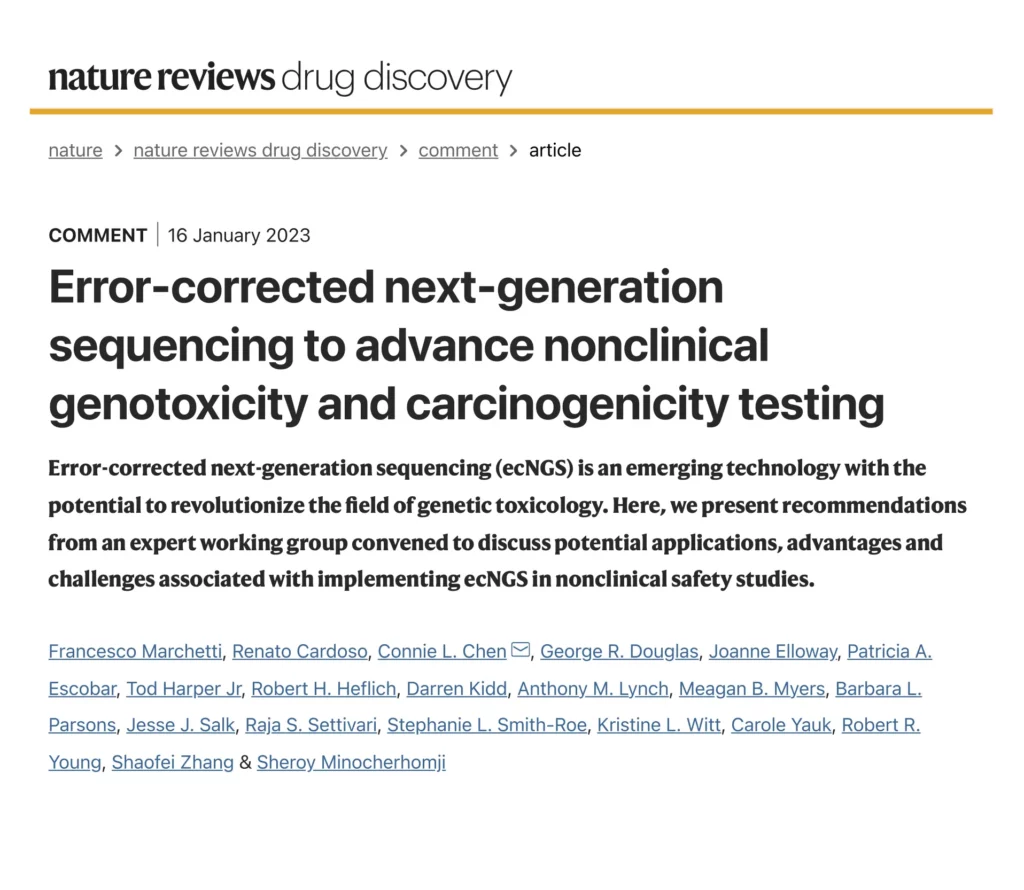Clonal selection of hematopoietic stem cells after gene therapy for sickle cell disease

Duplex sequencing (DS) is an error-corrected next-generation sequencing method in which molecular barcodes informatically link PCR-copies back to their source DNA strands, enabling computational removal of errors in consensus sequences. The resulting background of less than one artifactual mutation per 107 nucleotides allows for direct detection of somatic mutations. TwinStrand Biosciences, Inc. has developed a […]
Comparison of the transgenic rodent mutation assay, error corrected next generation duplex sequencing, and the alkaline comet assay to detect dose-related mutations following exposure to N-nitrosodiethylamine

N-Nitrosodiethylamine (NDEA), a well-studied N-nitrosamine, was tested in rats to compare the dose-response relationship of three genotoxicity endpoints. Mutant / mutation frequencies were determined using the transgenic rodent (TGR) gene mutation assay and error corrected next generation sequencing (ecNGS) (i.e., duplex sequencing (DS)), and genetic damage was detected by the alkaline comet assay. Big Blue® (cII Locus) animals […]
Adopting duplex sequencing technology for genetic toxicity testing: proof-of-concept mutagenesis experiment with N-ethyl-N-nitrosourea (ENU)-exposed rats

Duplex sequencing (DS) is an error-corrected next-generation sequencing method in which molecular barcodes informatically link PCR-copies back to their source DNA strands, enabling computational removal of errors in consensus sequences. The resulting background of less than one artifactual mutation per 107 nucleotides allows for direct detection of somatic mutations. TwinStrand Biosciences, Inc. has developed a […]
Duplex Sequencing Provides Detailed Characterization of Mutation Frequencies and Spectra in the Bone Marrow of MutaMouse Males Exposed to Procarbazine Hydrochloride
Next Generation Sequencing Workshop at the Royal Society of Medicine (London, May 2022): how genomics is on the path to modernizing genetic toxicology
Error-corrected next generation sequencing – Promises and challenges for genotoxicity and cancer risk assessment
Error-corrected Duplex Sequencing enables direct detection and quantification of mutations in human TK6 cells with strong inter-laboratory consistency
Molecular origins of mutational spectra produced by the environmental carcinogen N-nitrosodimethylamine and SN1 chemotherapeutic agent
Detection of DNA replication errors and 8-oxo-dGTP-mediated mutations in E. coli by Duplex DNA Sequencing
Error-corrected next-generation sequencing to advance nonclinical genotoxicity and carcinogenicity testing

Error-corrected next-generation sequencing (ecNGS) is an emerging technology with the potential to revolutionize the field of genetic toxicology. Here, we present recommendations from an expert working group convened to discuss potential applications, advantages and challenges associated with implementing ecNGS in nonclinical safety studies.
